By Spring Break, most Phoenicians have been wearing sandals for a month, so we were quite surprised to be greeted in geographically farther south Galveston by heavy winds and brisk temperatures. Don’t get me wrong, I can hang on the beach with the best of them but being trapped in a swaying VRBO surrounded by gloomy clouds with an amazing city down the road just did not compute. We needed a place to explore without being bludgeoned by the weather… so historical ships to the rescue!
Voyage to Pelican Island
Every turn in this historic city was full of new surprises for our landlocked children. Our 5-year-old son was enthralled by all of the trains and ships busy transporting goods as we drove across the causeway from Galveston to Pelican Island. Our daughter decided it would be pretty cool to go to the small Texas A&M satellite campus on it’s southwestern edge. As the ships came into view over the desolate reedy drive, the kids almost jumped out of the car with excitement.
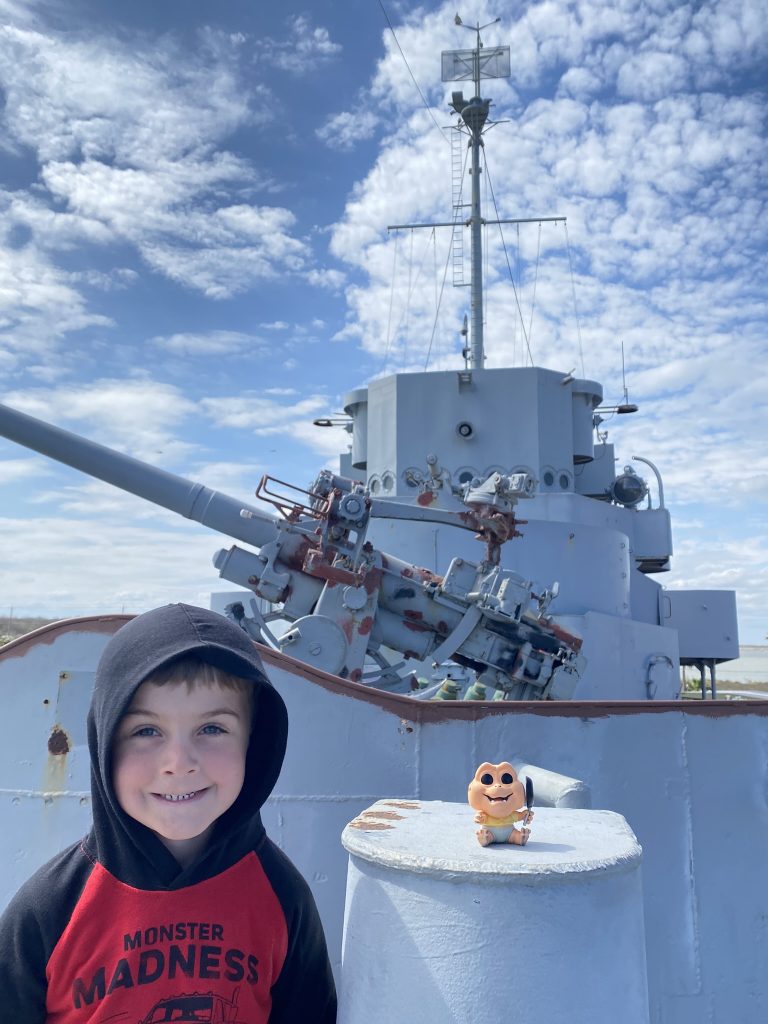
There are a variety of fees to pay upon entering depending on your chosen adventure for the day (check out this link to be prepared). Many people come to fish, picnic or play on the equipment, but if the boats are your goal, you have to pay to park AND get a ticket when you walk up to the exhibit.
The compass plaza is a beautiful compliment to the ships, as are the memorials around the grounds to soldiers and vessels that were lost during WWII. The tour is self-guided with a few staircases onto the ships and Bo decided the battleship escort needed to be first.
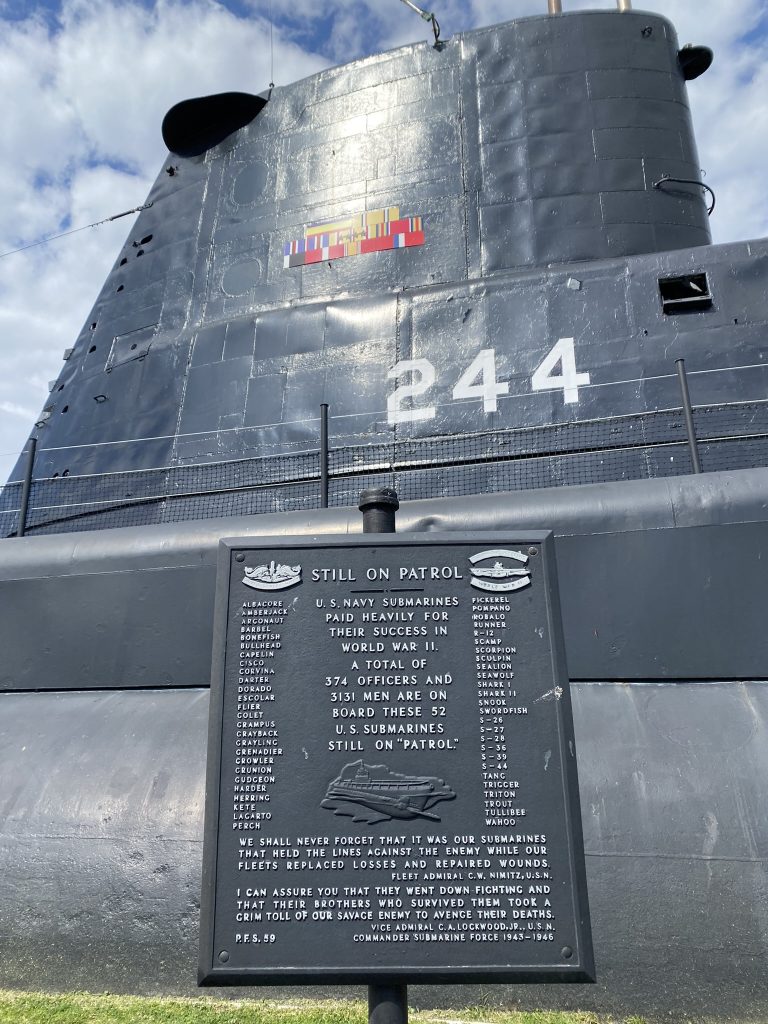
USS Stewart – Destroyer Escort
As a civilian from Wyoming, I am not versed enough in nautical vernacular to offer details that won’t offend (their website does here it you’re interested), but that doesn’t mean that we weren’t impressed. I’m also prone to seasickness so I was super pleased that the ships are buried into the shore for stability.
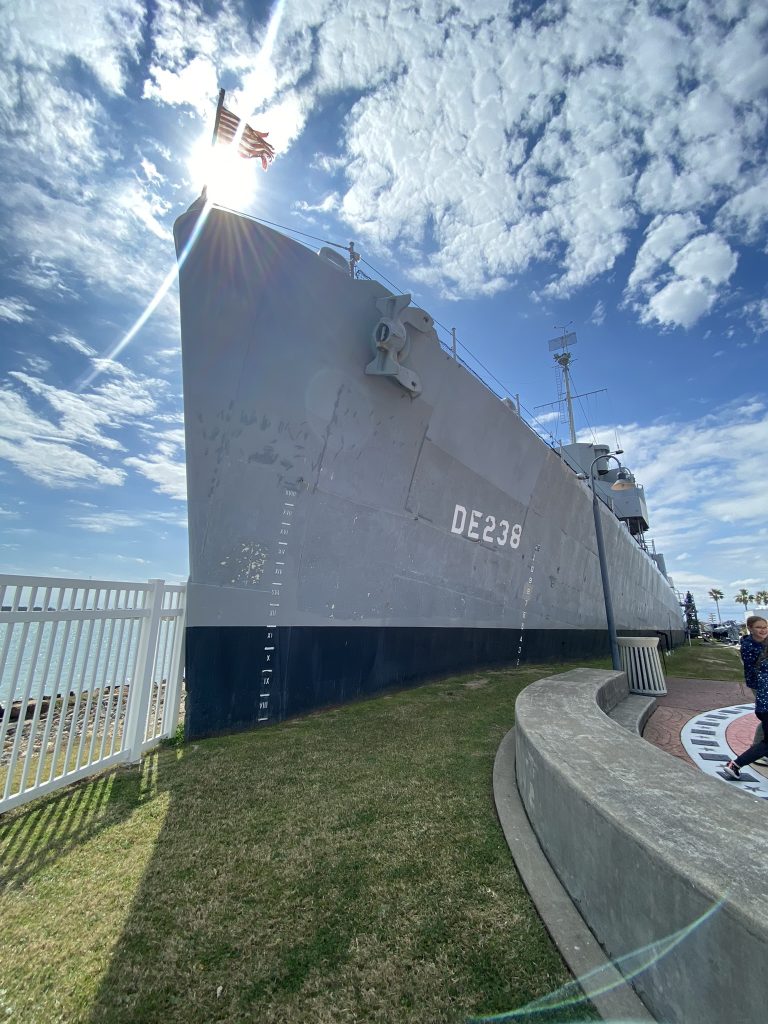
The deck of the ship was littered with huge guns, including hedgehog depth charges to sink submarines, which makes sense considering Destroyer Escorts were designed to protect convoys traveling across the ocean during wartime. In fact, this very ship ushered FDR’s Presidential Yacht down the Potomac to meet up with the USS Iowa and travel to Casablanca and Tehran to workout military strategy during WWII. It then completed 30 trips across the Atlantic before finishing the war in the Pacific and eventually being decommissioned in 1945.
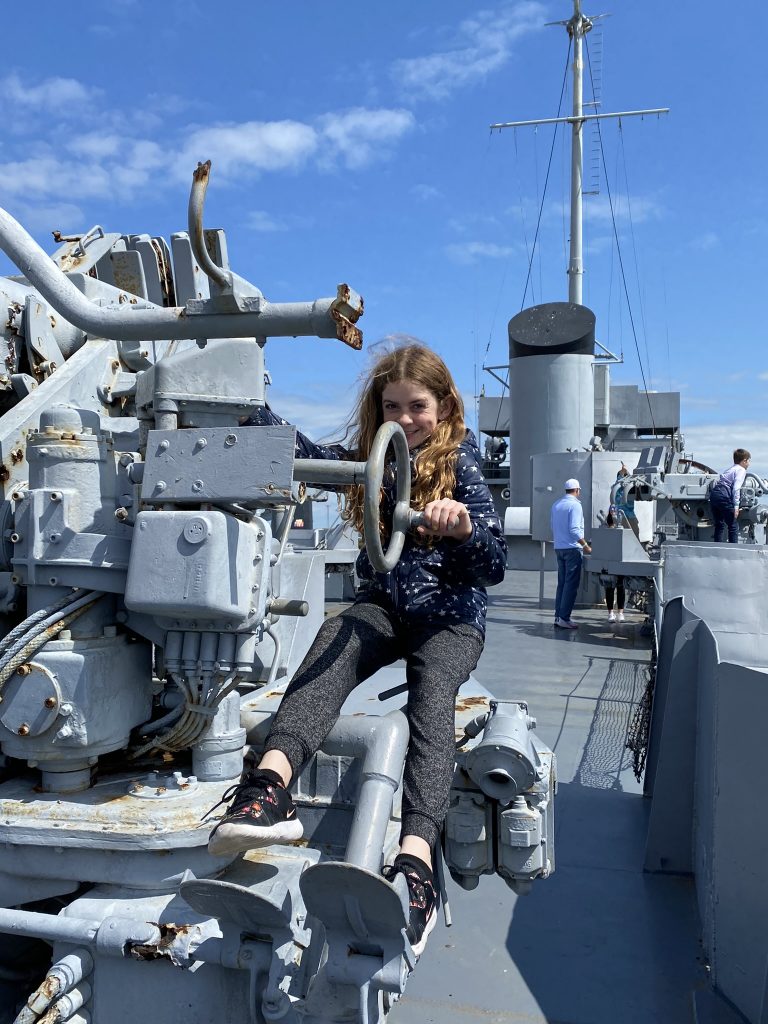
Going below the Destroyer deck
The sheer size of the vessel was awe inspiring, and once on the deck, we were instantly surprised that more sailors don’t wind up overboard with only simple aircraft cable boundaries at the edge of the ship. We always like visiting places that realize kids like to touch and climb. With the exception of locked doors and a few signs, this ship really allowed them to get a feel for the life of a WWII sailor.
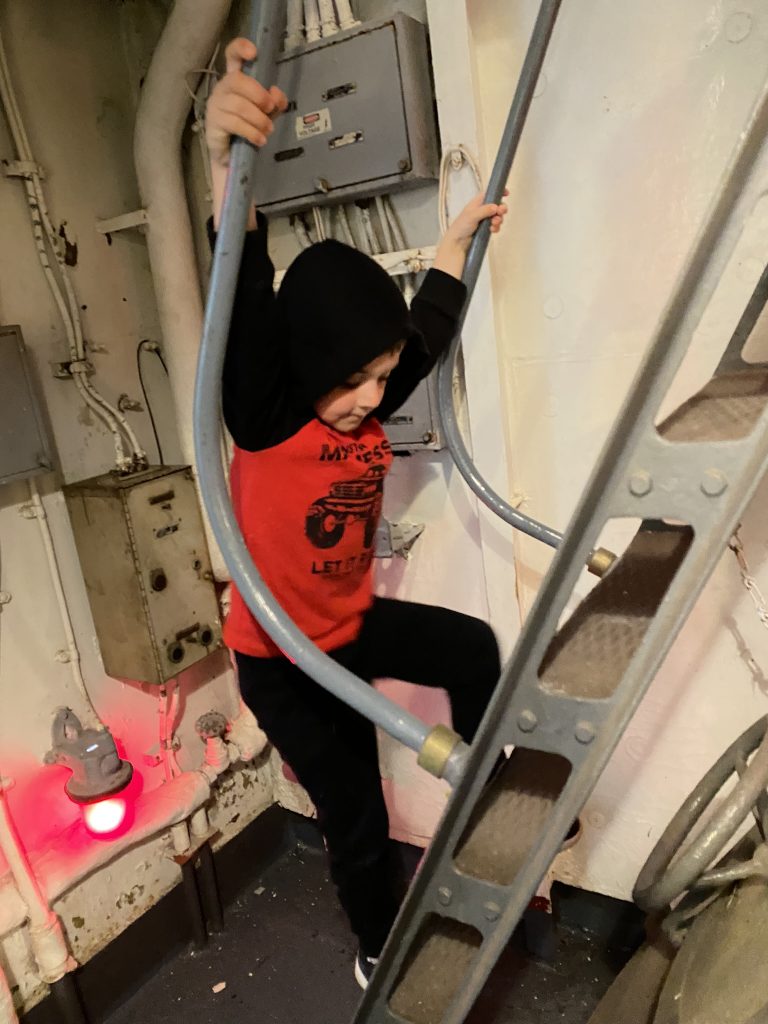
We enjoy contemplating back in time to what the real experience would have been on this ship. Lifted thresholds throughout the narrow corridors must have been tripping hazards for new recruits in the open ocean. Climbing up steep stairs with low clearances would have been a challenge in choppy waters. The 1940’s navigation room contains such large and archaic technology it’s wild to think that it was used to win a war.
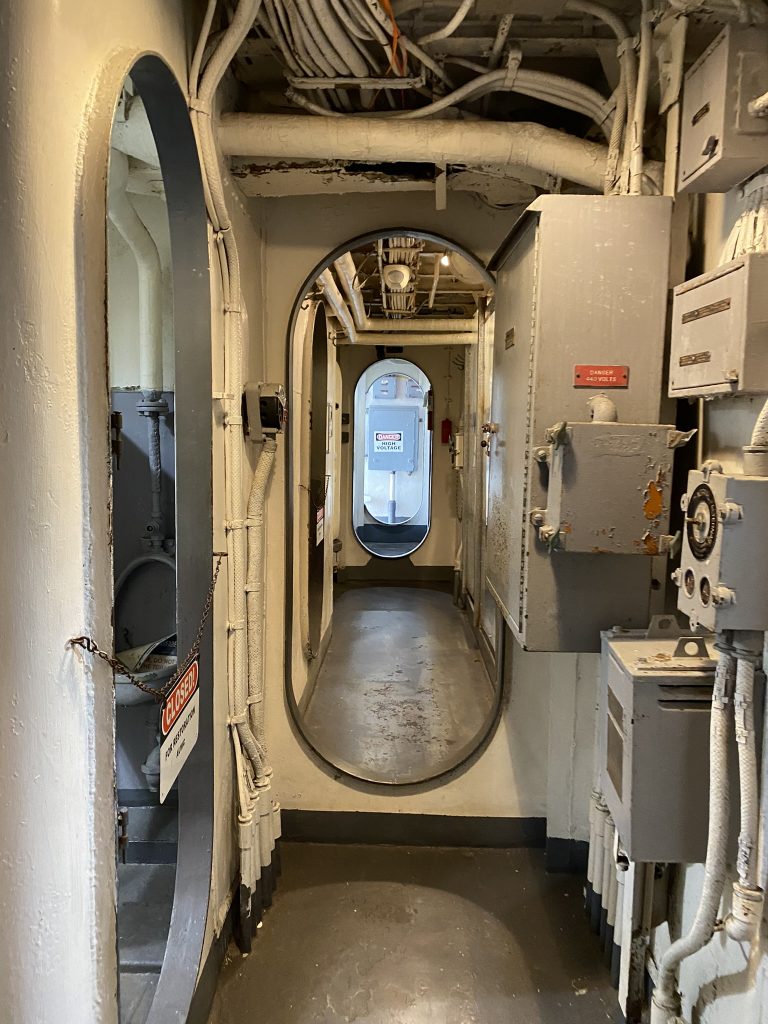
Sleeping 3 deep in suspended bunks that swayed with the ocean swells was surely a shock during the first days aboard. Cooking for 209 crew in a small kitchen then transporting meals downstairs to the mess was probably a real balancing act. And cold steely bathrooms with little privacy must have taken a bit of adjustment. Even the officer’s cabins were surprisingly small with very few amenities.
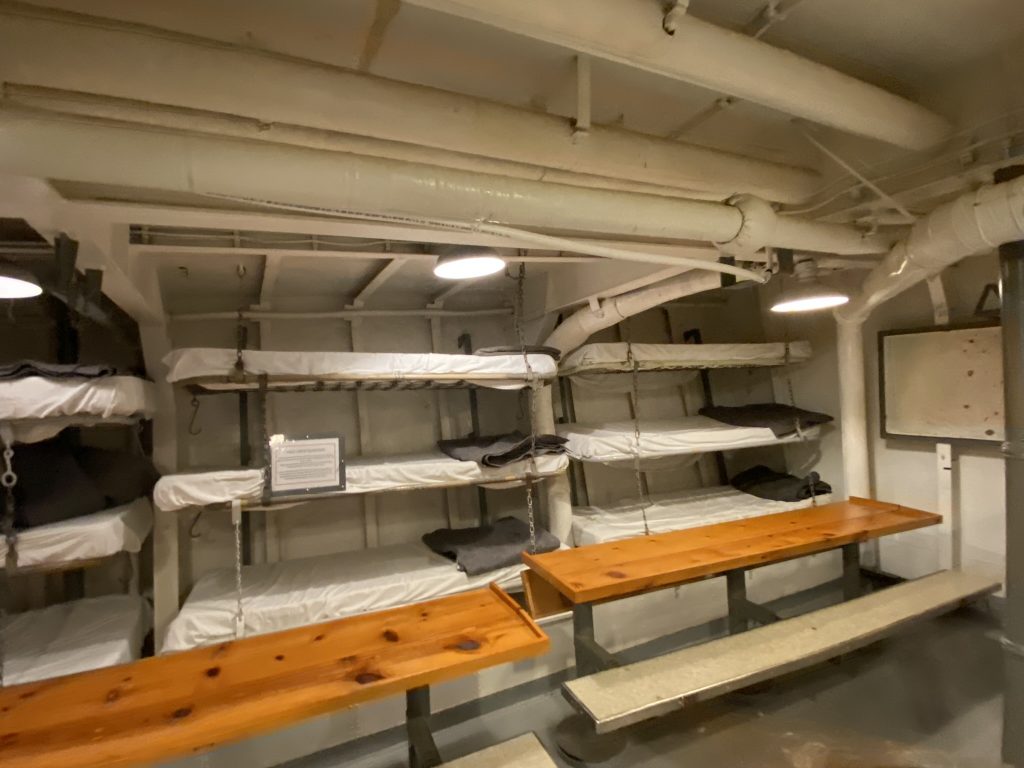
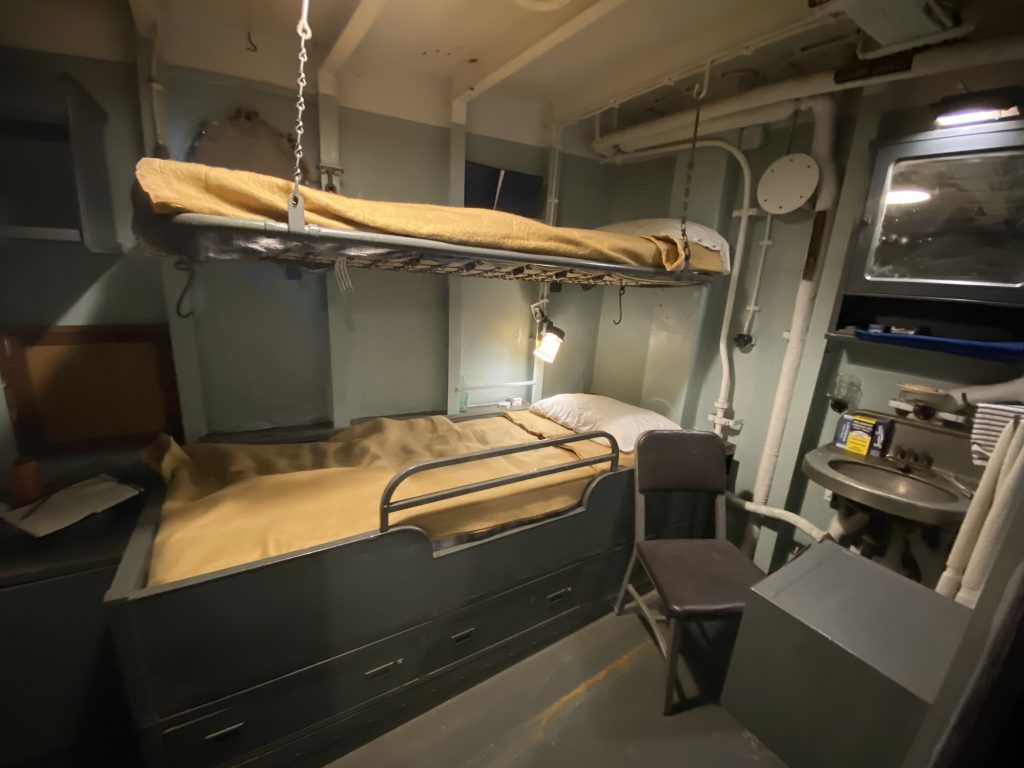
USS Cavalla – Submarine
I hadn’t really given much thought to what the deck of a submarine would be like, but I certainly wasn’t expecting a wood. I also had a bit of a notion what the inside of the destroyer escort would be like, but I was completely unprepared for how tight the inside of a submarine is.
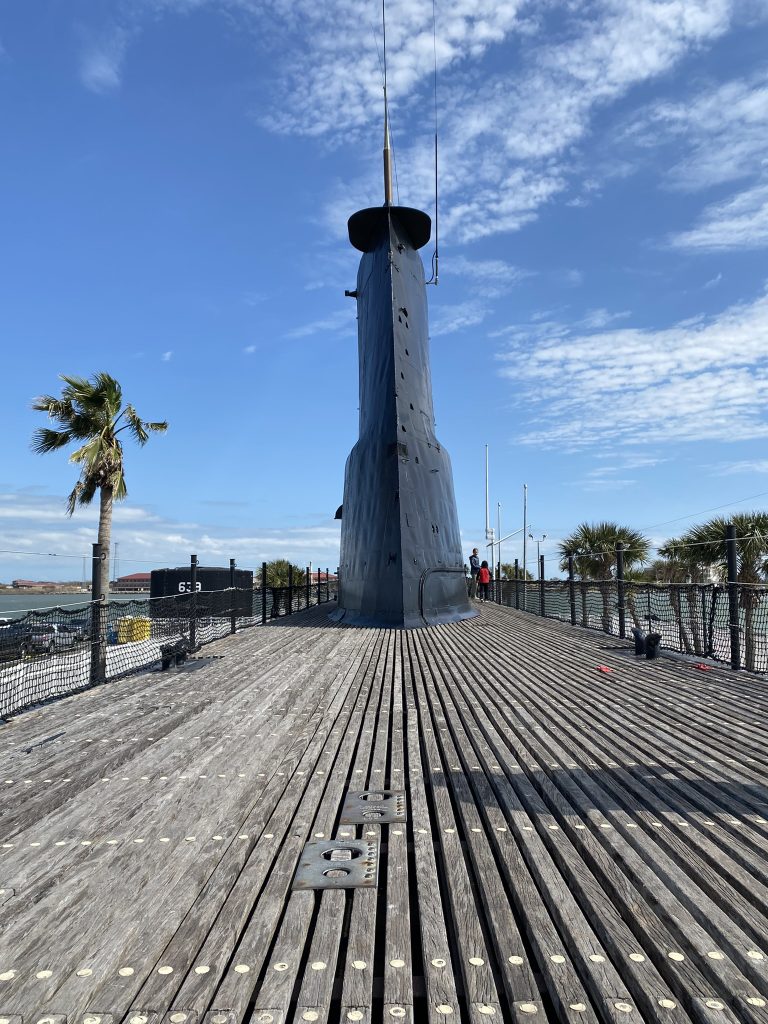
The entry stairs dropped us into the torpedo room home to 6 tubes that held a total of 16 rounds during wartime. These very tubes once held the torpedoes that sank one of the Japanese aircraft carriers responsible for Pearl Harbor! (More details about the ship and action here.)
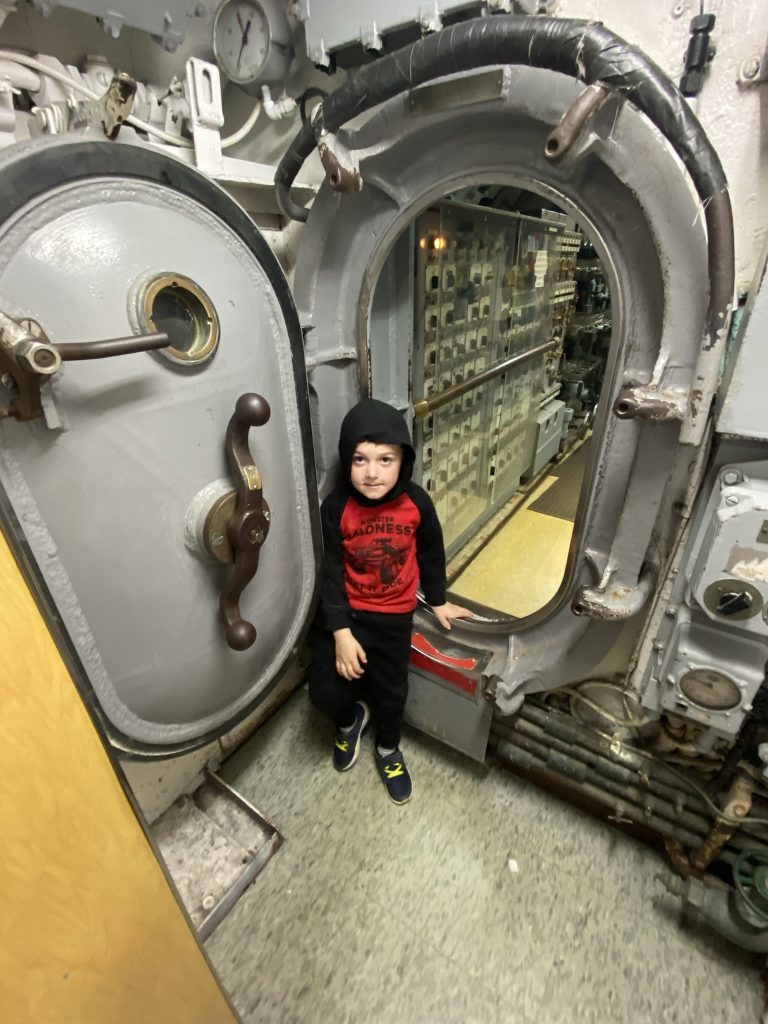
We postulated that members of a submarine crew probably had lots of knots on their heads considering that Bo (5 years old) was the only family member who could walk thru the bulkhead doors without ducking. It feels like every square inch of the sub has a purpose, with gauges, levers and compartments covering every wall.
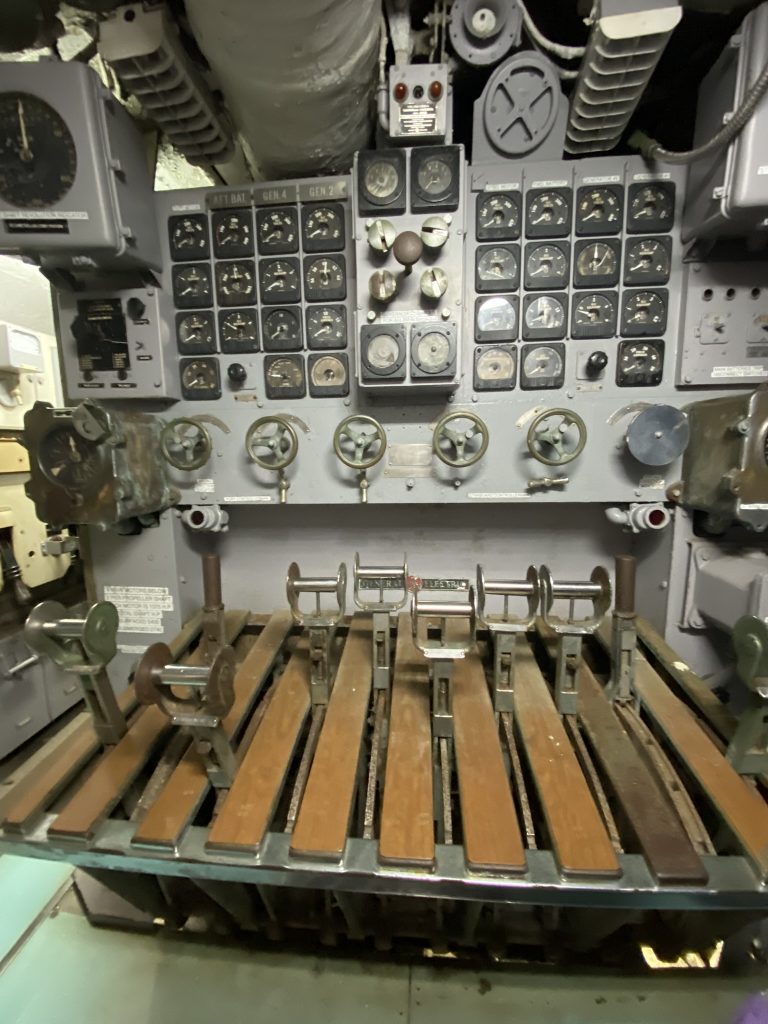
The tiny galley window next to the officer’s table was the perfect place for a little game of kitchen as we toured thru. The crew’s dining hall didn’t seem large enough for 54 people, but submarines run 24 hours, so only a third to a half of the crew would eat at any given time.
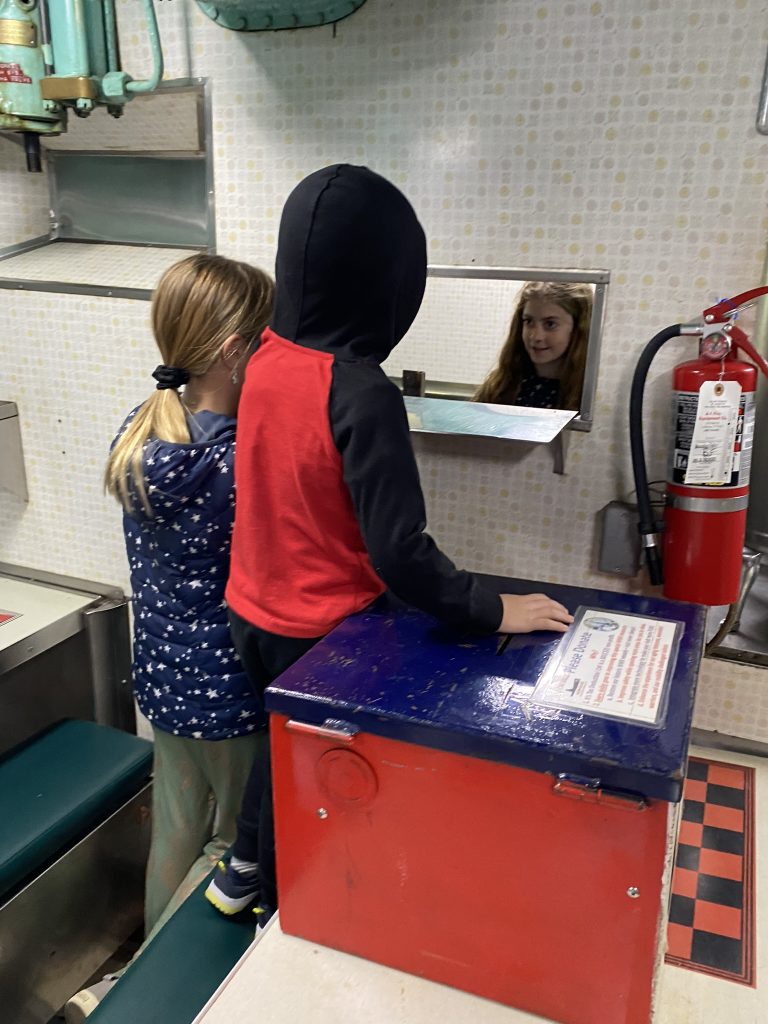
Toward the back of the ship, we encountered the four gigantic engines responsible for turning the two huge propellers along with the two stern torpedo bays. Sleeping arrangements were so tight in this ship that there are bunks between the torpedoes stored in the rear of the sub!
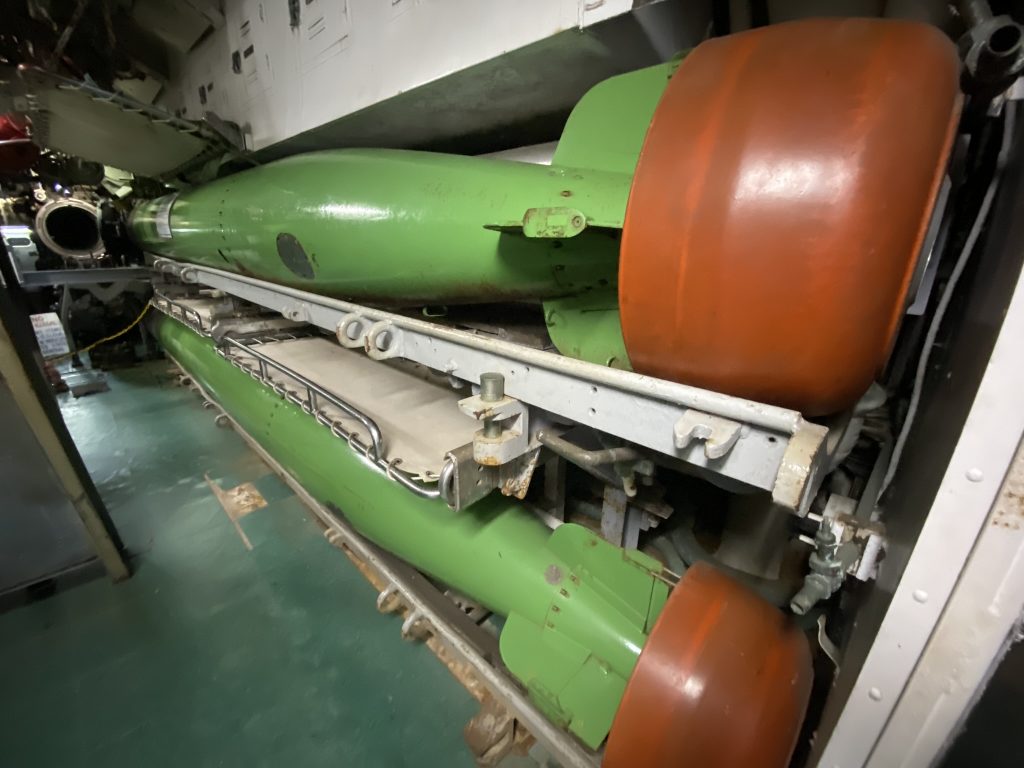
There is even more to explore below the main deck, but Hurricane Ike caused extensive damage that volunteers are continuing to refurbish and repair. Just a few minutes below the deck made us so grateful for the sunlight when we emerged from the stern stairway. After admiring the exterior of the sub and the surrounding memorials, we headed for snacks and a little climbing at the park.
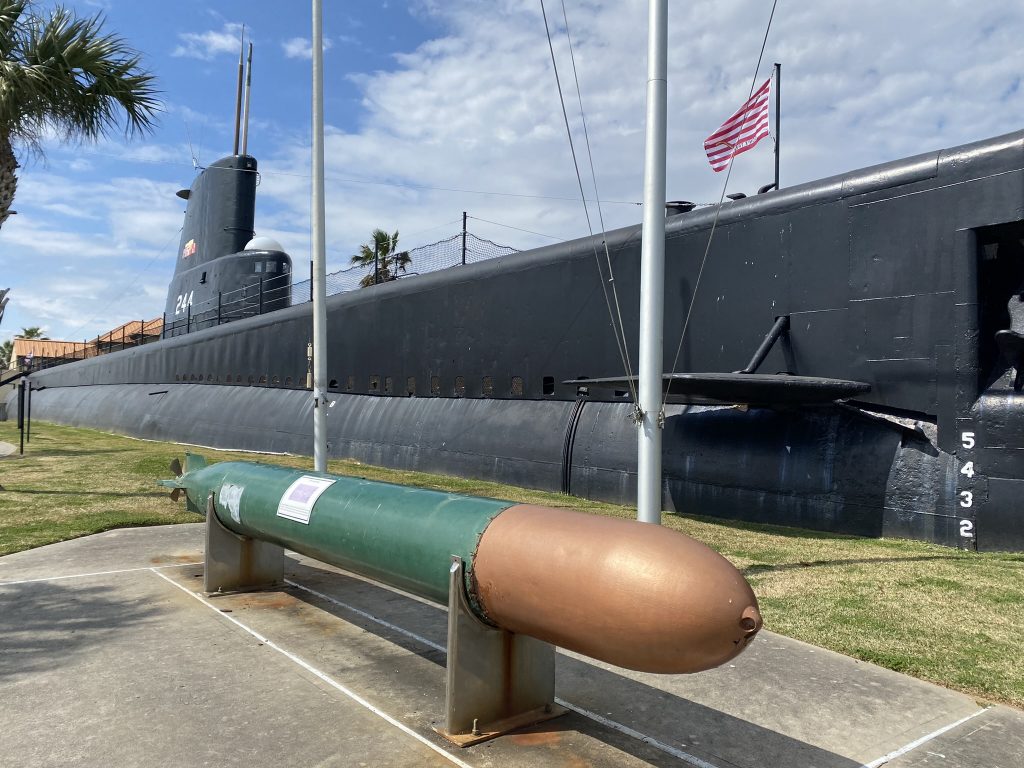
Stretching our legs at the Playground
After an hour exploring the boats, the weather broke, and we headed over to the park at the end of the island. The shipping routes are quite busy with ferries, personal watercraft, cruise ships, tankers and container ships all maneuvering thru the major access point to the Houston bay area. If you love boats or have a kid that does, this is the spot for you!
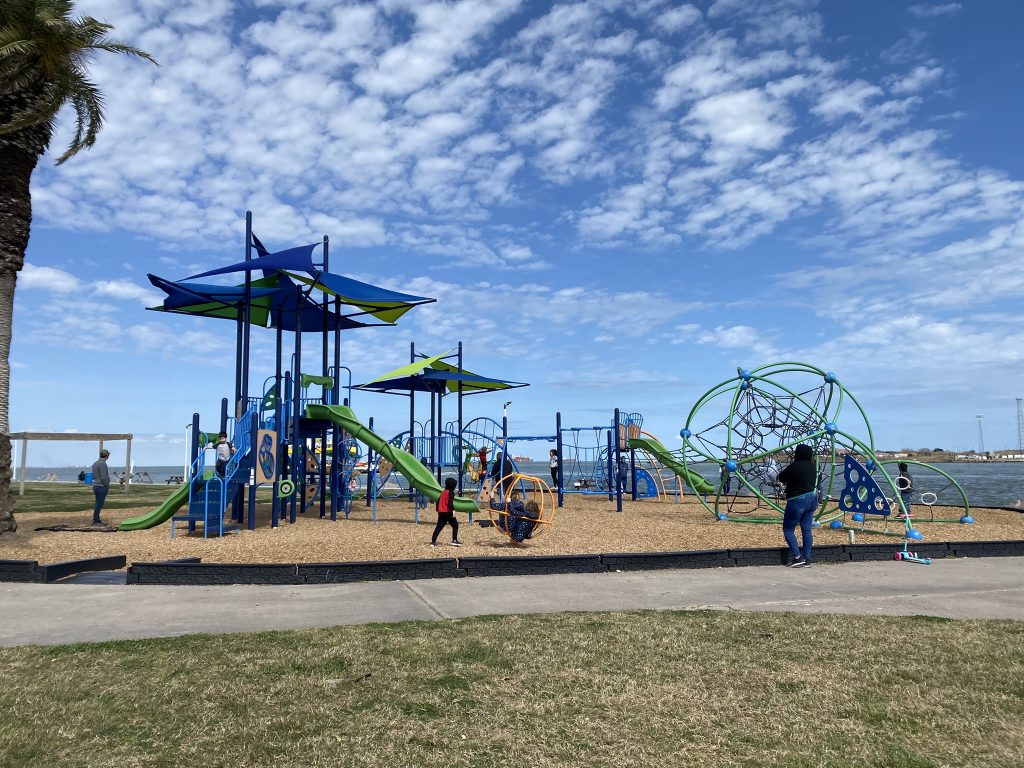
We were surprised to see so many people fishing in such a busy waterway, and also bewildered to find so many signs detailing the fish found in the waters and warning against catching sea turtles. While the kids burnt off some energy on the large playground, we wandered over to a strange speck in the water and discovered had a pretty interesting story.
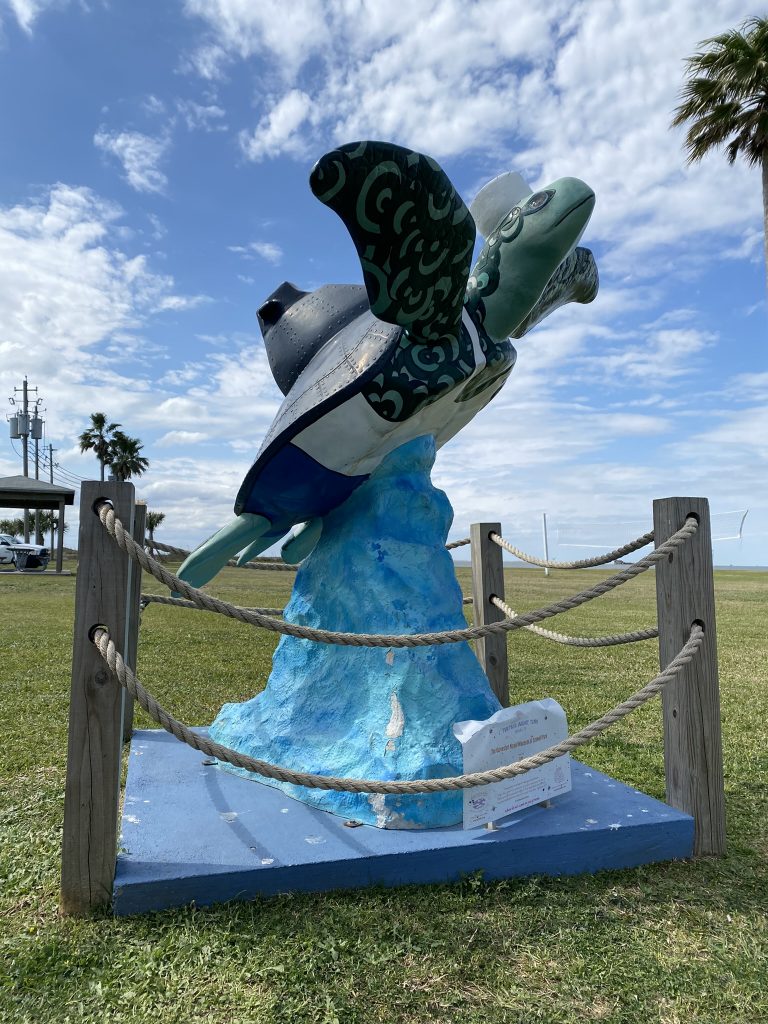
Sneak a peek at the SS Selma
Built during WWI as an attempt to build ships out of alternative materials, the USS Selma was one of 12 concrete oil tankers completed in 1919. Launched the day the Treaty of Versailles was signed, it never aided in the war effort, but did transport petroleum in the Gulf of Mexico.
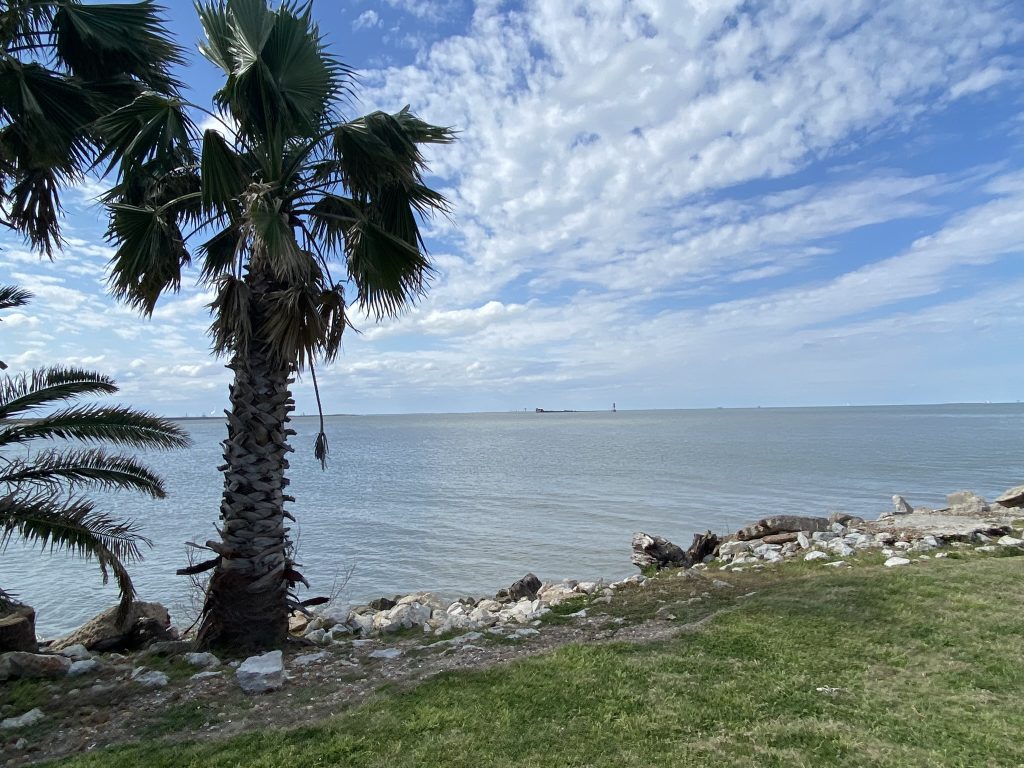
One year after launch, Selma struck a jetty in Tampico resulting in an irreparable 60-foot hole in the hull. After dredging a hole large enough to contain the behemoth, the ship was scuttled where it can be seen today. Plans to utilize the wreckage have never worked out, but scientists find value in the wreckage to study concrete construction and decomposition.
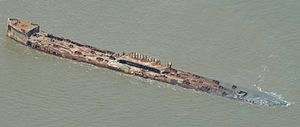
Missed Connections
With the exception of throwing in a fishing line, I think we had a pretty thorough Seawolf experience, but what do you think? Any cool memories or missed opportunities? Share in the comments below:)


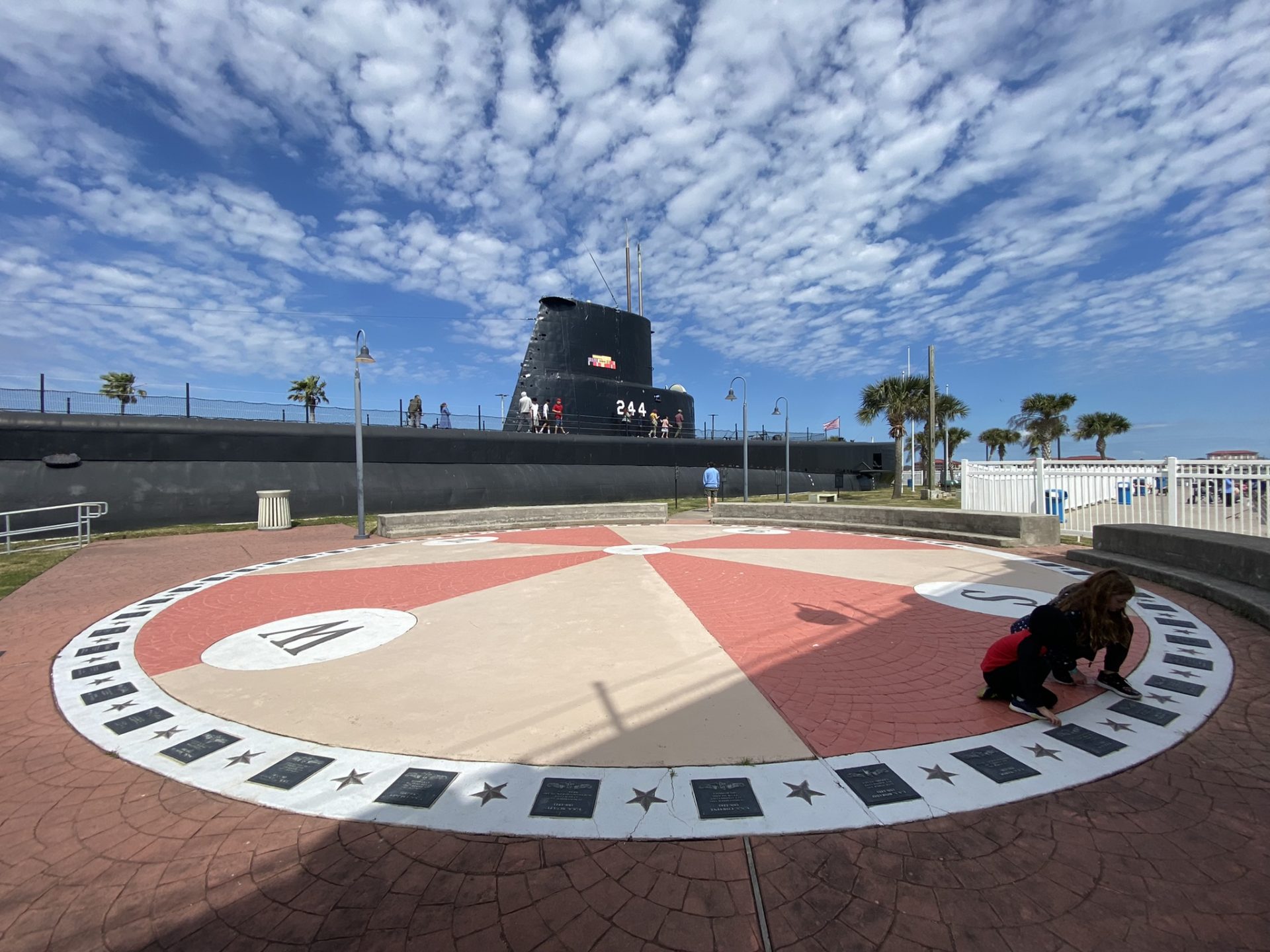
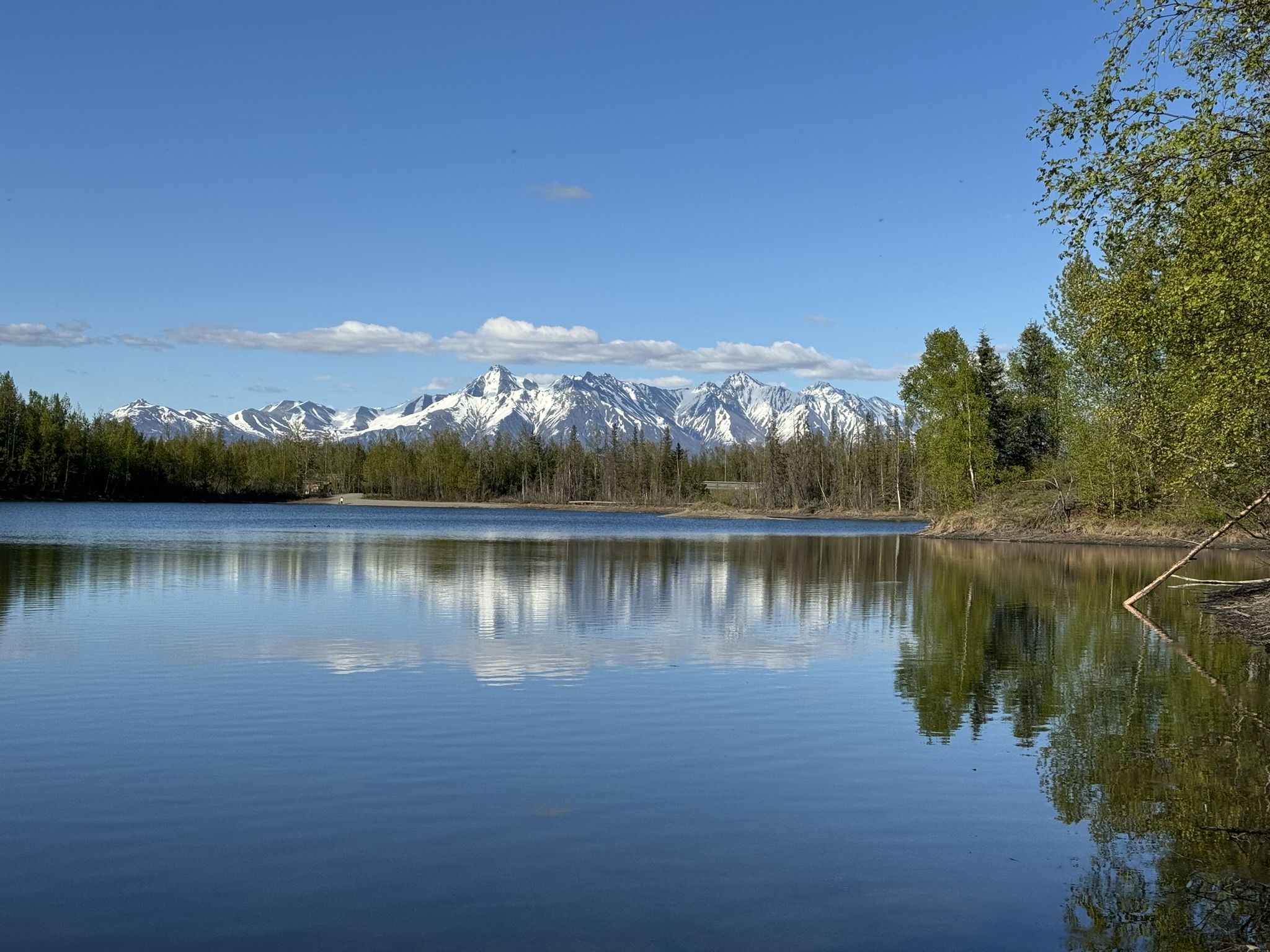
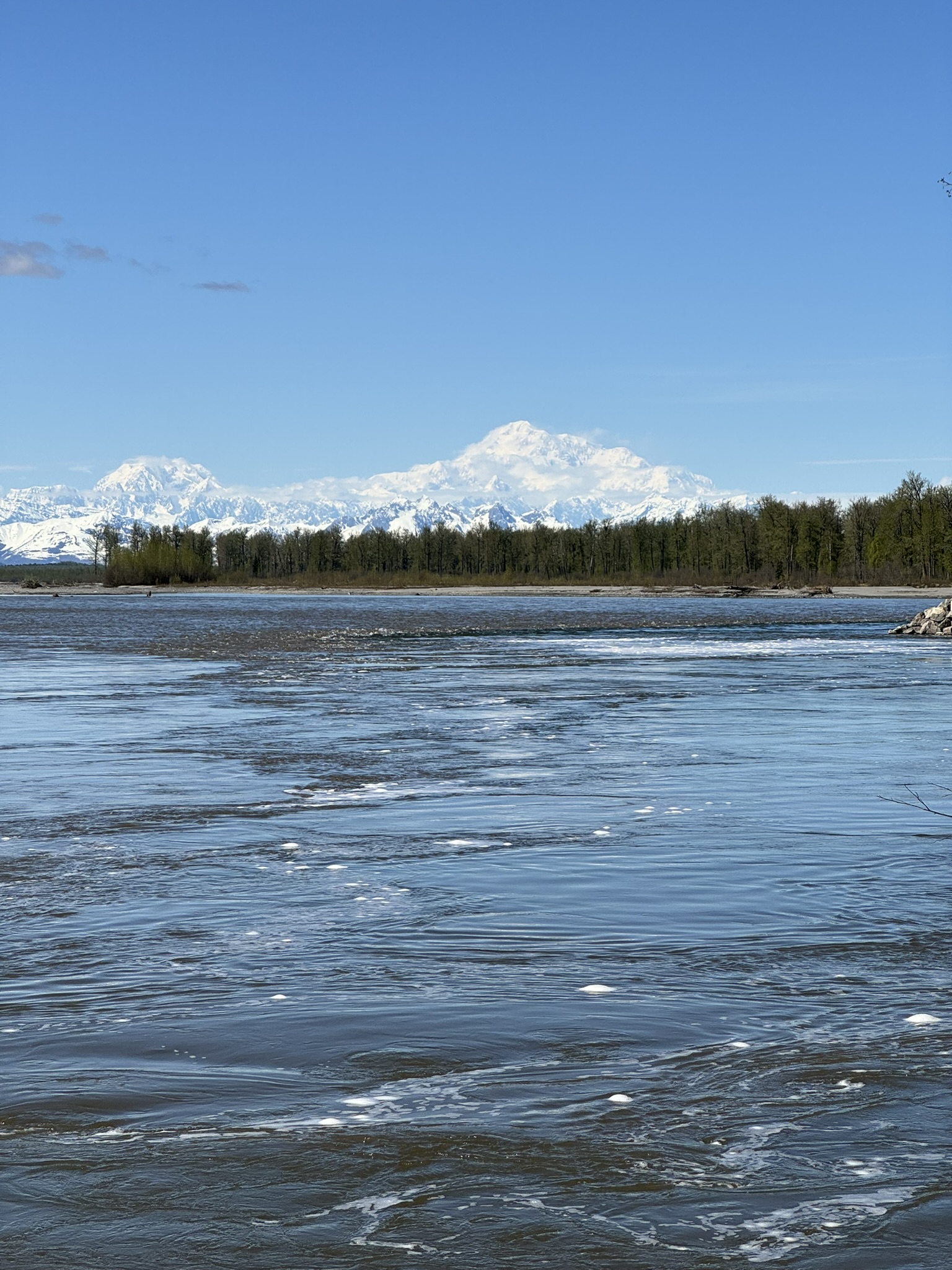
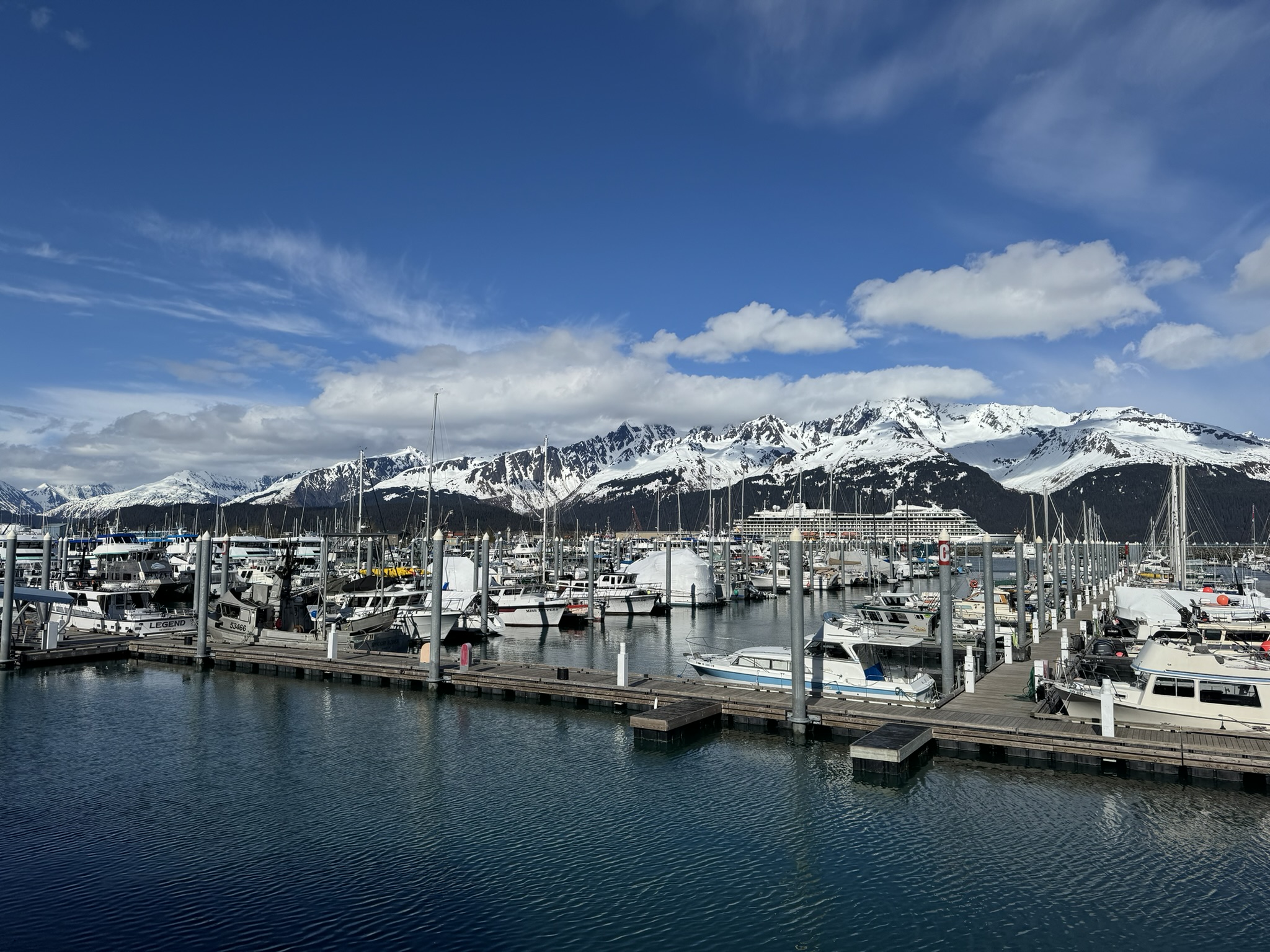
Leave a reply